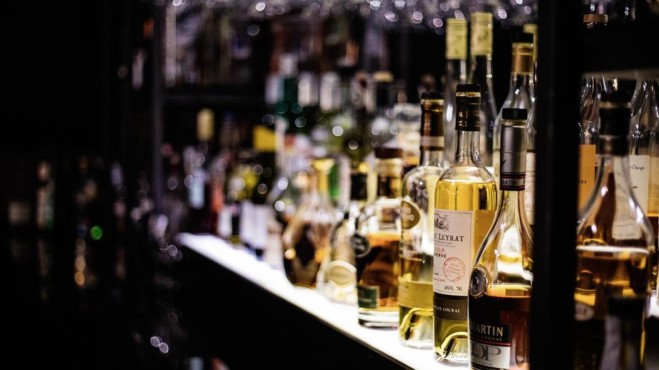During October 2017, at the University Clinical Center of Kosovo, 34 individuals sought medical attention for intoxication.
Avdush Bajgora, a doctor at the clinical center, says that the number of young individuals who seek help, mainly for alcohol poisoning, is increasing, especially during weekends.
“The majority of patients are 16 years old or over and many patients come back for help,” says Bajgora adding that intoxication results in temporary unconsciousness, and confusion.Intoxicated individuals are asocial, uncommunicative and hyperactive.
According to him, the number of women asking for medical assistance is lower than that of men.
Safet Blakaj, director of the Medical-Psychotherapeutic Center “Labyrinth,” speaks of this increasing trend and about some new risks of intoxication.
“We noticed that the number of excessive users is increasing, because some drugs are often used in combination with alcohol. This is another problem, when these two get mixed. For example, cocaine and alcohol are linked to each other. The majority of those who use cocaine also use a lot of alcohol. During the next stages we are not sure whether they are addicted to alcohol or cocaine: often times it is both. Individuals develop double addictions,” says Blakaj.
Unfortunately there is no general data about the number of chronic alcohol users, although, according to him, that number is low. On average, up to three individuals can seek help for alcoholism throughout the year.
Based on what can be seen, Blakaj believes that in 4-5 years time, the number of alcoholics and the amount of chronic addiction will increase.
“We have psychiatric therapies that we can use for alcohol addiction, but we have no specific therapies. Existing therapies that require medication are quite expensive. However, we haven’t got many cases that require us to start with that [expensive] therapy,” says Blakaj.
Artan Krasniqi, sociologist, says that social and cultural factors, whether it be cafeterias, markets, or medias, affect alcohol usage. Exposure to alcohol arouses the curiosity of young individuals that try it.
According to him, society and family also may have an effect on alcohol consummation.
“The socializing process of young individuals affects alcohol consumption. If they grow up in an environment where their parents drink alcohol, chances that they will take that as a model are high. There should be a strong link between the government and other institutions. For example, families should have the will and motivation to fight this phenomenon that is concerning us all, especially when younger generations consume alcohol. The government can increase the price of alcohol. Meanwhile, families can exercise more control over their children, in order to stop them from consuming alcohol, especially at earlier ages,” says Krasniqi.
Besnik Avdiu, seasonal waiter at one of the restaurants in Vushtrri, recalls the relatively large number of teenagers who consumed alcohol during summer. Alcohol consumers were 15 years old and over.
“There were cases when teenagers drank alcohol all night, until 3-4 in the morning… The majority of them were boys, but there were also some girls. Most of the times there were incidents, like breaking glasses, plates and annoying others,” he says.
Arian Mehmeti, student of the Faculty of Economics, says that he has never tried drinking alcohol and does not view it as something reasonable. He thinks that consuming alcohol in large quantities presents risks and can lead to loss of control.
“Alcohol can never be a solution to problems, on the contrary it continues to be one of the main causes of problems,” says Mehmeti.
Bekrie Maxhuni, psychology professor in “Eqrem Qabej” gymnasium, believes that teenagers sometimes turn to alcohol due to lack of information about the negative effects it might cause to the thinking processes. It can cause memory damage, forgetfulness, and loss of attention, difficulty with concentration and lack of personal judgment…
She views the lack of rehabilitation institutions for alcoholism as a problem that could get worse.
“Although people have doubts or want to stop alcohol consumption, they have no place to turn to… There has to be an institution that would treat them after they stop consuming alcohol,” says Maxhuni.
She thinks that alcohol consumption can be fought by creating policies that prevent alcohol usage in institutions and that would prohibit selling alcohol to individuals under 18.
A survey conducted by UNICEF some years ago, as part of the research study called “Psikoaktive Kosovë,” concluded that 45.2% of young men had consumed alcohol compared to 30.5% of young women.
Shkurte Berisha










